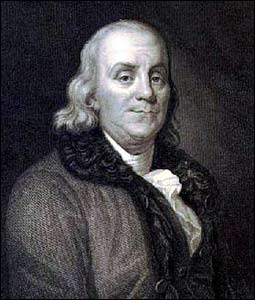|
Early Modern Economic Theory & The Rise of Classical Economics |
|
| Mercantilism
A dominant set of economic theories and attitudes from the 16th-century to the mid-18th century, mercantilism held that the global supply available for trade is a constant, and therefore, nation-states should maintain a positive balance of trade through protectionist policies that encourage the sale of exports, while discouraging loss of revenue through the buying of imports. This included various national policies such as monopolies, tariffs on foreign goods, price ceilings, market quotas, rents on transported goods, and the stockpiling of gold bullion. There was no one school called "mercantilism." Rather, later economists labeled polices like those of Robert Walpole in England and Jean-Baptiste Colbert in France "mercantilist" in retrospect. These policies occurred both during the settlement and colonization of the Americas and the rise of modern nation-states, and thus represented a time of greatly expanding foreign markets and empire building. Classical Capitalism In the eighteenth-century, critics of mercantilism began to arise, such as David Hume, the physiocrats of France, and finally the classical economists Adam Smith and David Ricardo. Hume drew attention to the fact that as bullion accumulates in a nation, its value decreases relative to other goods, while as bullion is exported, the value rises relative to other goods. The physiocrats argued that a nation's wealth lies in agricultural production (that is productive work) rather than governmental wealth. Quesnay, for example, held that agriculture, rather than commerce and industry, were the true sources of wealth. Turgot stressed the importance of self-interest in an economy and how trade barriers undercut this. However, the physiocrats did not look to other sources of productive work outside agriculture. Adam Smith's Wealth of Nations, still represents the most influential work in economic theory. Smith, while accepting the physiocratic stress on an end to market regulation and the importance of productive labor, rejected agriculture as the sole source of this wealth. Labor of all kinds is more valuable than land. In Smith's understanding, a free market has a natural regulatory pattern:
As a result, Smith opposed mercantilist regulations of markets, though he held that governments should do things to assist the economy, such as maintain a system of national roads and promote national defense. Later theorists, Thomas Malthus and David Ricardo, expanded Smith's market understanding, though Smith's own views may better explain modern markets in some ways. Rev. Malthus formulated the principle of overpopulation which held that uncontrolled population growth occurs geometrically, while food production increases only arithmetically:
As a result, demographics became an element in economic thinking. Ricardo, building on this line of reasoning, proposed a number of important ideas, including:
Readings Addison, "The Royal Exchange" (ER 480-483)
Franklin, "Industry and the Way of the World" (ER 483-490)
|
|
|
Hume, "Of Luxury" (ER 491-496)
Quesnnay, "The Physiocratic Formula" (ER 496-502)
Turgot, "Economic Liberty" (ER 502-505)
Smith, "The Wealth of Nations"
Ricardo, "Iron Law of Wages " (Handout)
|

